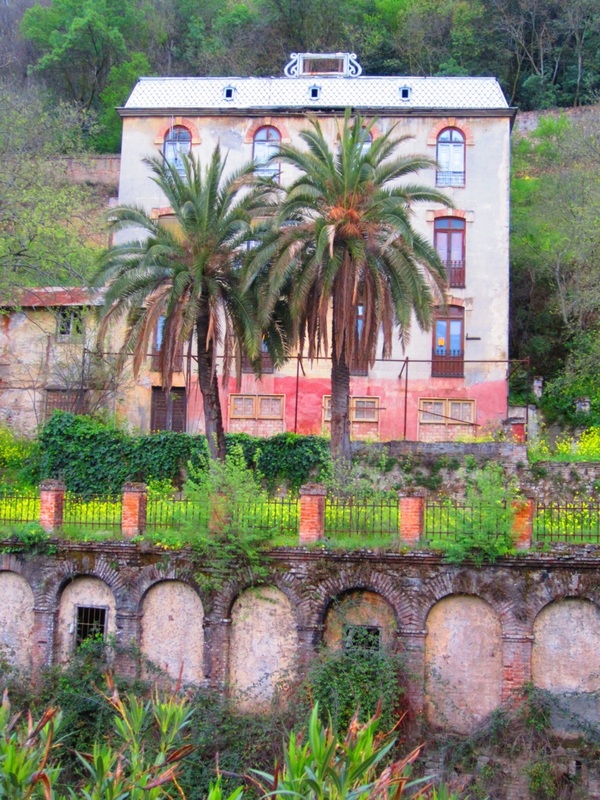|
This page is a response to Jay Ruzesky, who tagged me as part of a "Blog Tour" project that is circulating among writers. The "tour" involves four common questions, which all participating writers answer. They then hand on these questions to two more writers. It may sound like a ponzi scheme, but if it is, it's a positive one. I will be "tagging" poet Cynthia Kerkham and novelist/poet Arleen Paré. But first, Jay Ruzesky: he is a poet, essayist, reviewer and teacher, whose latest book, In Antarctica, is a personal account of his trip to the planet's southernmost continent, a journey he takes, in part, to fulfill his dream of visiting the land explored by his ancestor, Roald Amundsen. Cynthia Kerkham is a poet, a teacher, and, when she has a boat, an ardent sailor. She has published her poetry in literary periodicals across Canada, and her first collection, Good Holding Ground, came out with Palimpsest Press in 2011. Her blog post can be found on her Facebook page under Cynthia Woodman Kerkham. Arleen Paré worked for over two decades in Social Services and lived to tell the tale. Her first collection of poetry, Paper Trail, came out in 2007 with NeWest Press, and her most recent book is a novel called Leaving Now, published by Caitlin Press in 2012. She divides her time between Mayne Island and Victoria, where she lives with her partner Chris Fox. The Questions (The pictures that accompany this blog seemed initially to have no relevance to the questions posed, but now they do. ) 1) What am I working on? In truth, this is more a question of what I am NOT working on, which in my case is a novel I began in my year off (2011-2012). I managed to complete a draft of something, a rough approximation of the story I had set in Vancouver during the early fifties, but, while some of the individual chapters may have had merit, I felt in the long run I had chosen the wrong point of view for the narrative and began to rewrite the entire thing in first person just as my year away ended. Since then, I haven’t gone back to it, possibly out of fear, but more because of the shock of re-entering the world of teaching, the time it takes simply to get through a day of work. I also want to think about the story itself, whether it’s worth telling and whether the way I’m telling it will be compelling. I haven’t been entirely idle, though. I have also written several short stories, poems and personal essays, and I am hoping to work toward a book in at least one of these genres, in conjunction with completing a second novel. 2) How does my work differ from other work in its genre? This is a horrible question, horrible because it raises the possibility that what I am doing is really indistinguishable from the work of hundreds – okay, thousands – of other writers who craft stories and poems out of their time on this planet. If I were David Foster Wallace or George Saunders or Michael Chabon, I might be able to make a case for my unique prose style or themes or narrative structure, but my writing does not deviate drastically from the kind of storytelling or lyrical narrative poetry one can find in many literary periodicals. I like to think that my subject matter, while the stuff of every person’s life – loss, love, betrayal, self-doubt, discovery – is framed in such a way that it stands out because of its details, its characters, its setting, but I am not so deluded as to think that I am breaking new ground in my writing. I think it is enough to tell a story well, to express an observation or feeling as truly as possible. 3) Why do I write what I do? “Why I write” is a popular subject, one addressed most famously, possibly, by George Orwell who invoked ego, love of language, a desire to set things down for posterity and a sense of political purpose. He also said that “a writer’s subject matter will be determined by the age he lives in,” and these words very much apply to me. I tend to describe my world – or, rather my various worlds. One of them is the world of a Canadian boy growing up in the fifties, a comfortable post-war time, where not much was demanded of children except to play, to attend school and to find some occupation. Another is late adolescence, the sixties and early seventies. Yet another is marriage and family. I write, as Bill Gaston would say, not what I know, but what I know to be true. Somehow this act seems important to me, and sometimes even fun. 4) How does my process work?
The word process suggests a kind of fixed method, a machine-like adherence to certain ways of doing things to produce a certain effect or outcome. I don’t believe I have any process, or, if I do, it is not one that I have chosen to identify or describe. I believe every poem or story or novel demands an entirely different process. I even believe that when process becomes apparent in a novel or set of stories or poems – I’m thinking of the way in Richard Ford’s novel Independence Day the main character, Frank Bascombe, falls a little too easily into digressions – some of the power of the work is diminished. As for writing itself, I try to be disciplined about it. If I am blessed with a long space of time, I will write rather religiously, getting up around seven-thirty and pushing through until mid-afternoon before taking a break. This is not to say that I write solidly during that time, but that I tackle the problems before me, whatever they may be. While setting down the draft of the novel I am currently working on, for example, I tried to maintain the goal of writing five pages a day. Sometimes I would write more, occasionally fewer, but on average, I met my quota. The writing wasn’t great, but the story was finding its way onto the page. My first novel, After Goodlake’s, evolved in a completely different manner, one that seemed unsuitable for this new project. Stories and poems also have differing ways of finding space on a page. Two weeks is the average time for a draft of a story, and I may devote a few days to the draft of a poem. Once the draft is done, all bets are off. The finished product could take months of revision.
2 Comments
Leave a Reply. |




 RSS Feed
RSS Feed
